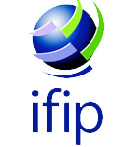
|
2009 World Congress on Privacy, Security, Trust and the Management of e-Business 9th annual World Congress on the Management of e-Business
Workshops and Tutorials Session #1: Introduction to Intrusion Detection Session #1: Introduction to Intrusion Detection Overview Goals Intended audience Outline Facilitators Hanli REN is a M.S. candidate at the Information Security Center of Excellence (www.ISCX.ca), Faculty of Computer Science, University of New Brunswick. She received her B.Sc. degree in Electronic Engineering from Shanghai Jiaotong University. She worked with Alcatel Shanghai Bell Co., Ltd as a Software Engineer. Her current research focuses on Alert correlation and Simulation of Network Attacks. Ali A. Ghorbani received his PhD (1995) and Masters (1979) from the University of New Brunswick and the George Washington University, Washington D.C., USA, respectively. Currently, he is a Professor and Dean, Faculty of Computer Science, University of New Brunswick, Fredericton, Canada. He is also Director of Information Security Centre of Excellence (http://www.iscx.ca) and the lead researcher in the Privacy Security and Trust (PST) Network. Dr. Ghorbani’s research originated in software development, where he designed and developed a number of large-scale systems. His current research focus is Web Intelligence, Information and Network Security and Critical Infrastructures protection. He has published over 220 journals, refereed conference papers, posters and technical reports, and has edited 8 volumes in the area of Computer Science. He has also supervised more than 120 research associates, postdoctoral fellows, and undergraduate and graduate students. Together with two other researchers, he received a CFI (Canada Foundation for Innovation) grant to establish a research laboratory (LIDS Lab for the Investigation of Discrete Structures). He is the project leader and principal investigator for two Atlantic Innovation Fund projects, “Adaptive Websites” and “Fuzzy Adaptive Survivability Tools for Intrusion Detection (FAST ID)”, valued at 1.05 million and 2.2 million, respectively. In 2003, he received the university’s merit award for outstanding contributions to the University of New Brunswick. With over 28 years of experience in academia and more than 10 years experience in high- tech development at major industrial corporations, including experience in R & D supervision, he brings strong technological visionary skills and team leadership to the Intelligent and Adaptive Systems (IAS) and Network and Information Security (NIS) research groups that he established in 2002 and 2004, respectively. The IAS and NIS groups (http://ias.cs.unb.ca; http://nsl.cs.unb.ca) pursue research on machine and statistical learning, data mining, intelligent agents and multi-agent systems, Web intelligence, trust and network security. Dr. Ghorbani has organized and chaired 11 national and international conferences and workshops. He is the Co-Editor-in-Chief of Computational Intelligence, an international journal, and the Associate Editor of the International Journal of Information Technology and Web Engineering and the ISC Journal of Information Security.
Session #2: Interactive Privacy: Utilizing Assessments to Support Effective Decision-Making Overview Goals
Intended Audience
Outline
Facilitator Session #3: Towards an Open Source Vulnerability Assessment Framework Overview Goals Intended audience Outline Facilitator
Call for Workshop and Tutorial Proposals Operating jointly as the 2009 World Congress on Privacy, Security, Trust and the Management of e-Business, the annual World Congress on the Management of e-Business conference organized by McMaster University’s eBusiness Research Centre (MeRC) and the annual Privacy, Security and Trust conference (PST) organized by the University of New Brunswick (UNB) in cooperation with the National Research Council of Canada Institute for Information Technology (NRC-IIT) will host a joint conference August 25-27, 2009, in Saint John, New Brunswick, Canada. Proposals are solicited for workshops or tutorial sessions to be held on August 25th, 2009 on topics related to the major themes of the conference: privacy, security, trust, eHealth, Human-Computer Interaction, eInnovation or eGovernment. Detailed descriptions of each theme can be found linked from the congress website at http://www.unb.ca/pstnet/congress2009/ Tutorial/workshops attendance is included in the general conference registration, so proposals should be targeted for a general audience. The preferred format is a half day session for the morning or afternoon. Workshops are intended is to provide a platform for presenting ideas in a less formal and possibly more focused way than the conference itself. They should allow members of the community to interact and discuss approaches, methods, and concepts about specific topics. They should offer a good opportunity for researchers to present their initial work and to obtain feedback from an interested community. Workshop organizers are responsible for establishing a program committee, collecting and evaluating submissions, notifying authors of acceptance or rejection in due time, and ensuring a transparent and fair selection process, organizing selected papers into sessions, and assigning session chairs. Tutorials should provide participants with information and instruction on well-established or new cutting-edge topics or tools (including technology demonstrations), relevant to the conference themes. Introductory to advanced tutorial sessions are welcome. They are intended to offer participants an opportunity to learn about new research or applications, to get an introduction to important established topics or tools, or to develop higher skill levels in areas in which they are already knowledgeable. Any persons interested in developing a workshop or tutorial are invited to contact the workshop/tutorial chairs to discuss their proposal. Workshop Proposal Format Edward Brown, Memorial University, Canada
|










